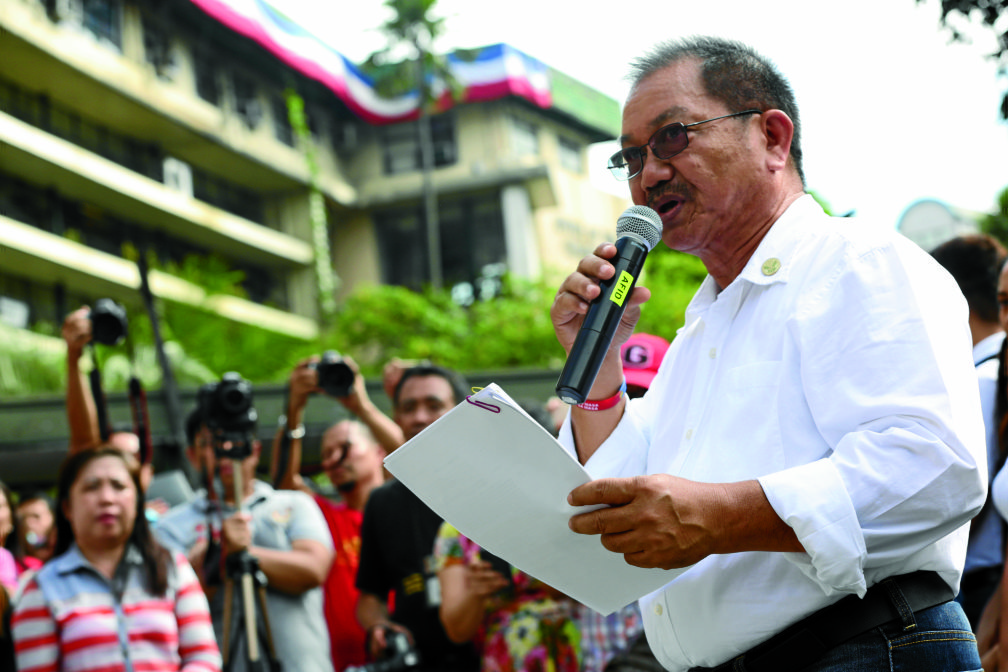
Agriculture Secretary Emmanuel F. Piñol (File photo by NIÑO JESUS ORBETA / Philippine Daily Inquirer)
“You cannot milk an emaciated cow.”
This was the response of Agriculture Secretary Emmanuel Piñol to Socioeconomic Planning Secretary Ernesto Pernia after the latter noted the “stagnant” performance of the farm sector.
“We are gravely concerned with the almost stagnant performance of the agriculture sector,” Pernia said during a press conference with key officials of the National Economic and Development Authority on the country’s economic growth for the second quarter of 2018.
“[The Department of Agriculture] should conduct a comprehensive review of policies and programs that restrict access to land,” he added.
For the April-to-June period, the growth in the country’s gross domestic product (GDP) was the weakest in three years at 6 percent, ending a run of 10 consecutive quarters of expansion of at least 6.5 percent.
The agriculture sector registered a 0.2-percent growth during the period.
Its anemic performance during the period—with a growth rate pegged at 0.7 percent— was mainly caused by a decline in the output of the crops sub-sector, which is the biggest contributor to its total production.
This was below the 2.5 to 3.5 percent annual growth rate target for the sector under the 2017-2022 Philippine Development Plan of Neda, and far from DA’s annual farm growth rate target of 4 percent.
“It’s true that the sector’s growth is almost negligible in the second quarter, but that is not reflective of the performance of the sector for the year,” Piñol said.
The secretary noted the Philippine Statistics Authority’s rosy forecast for both the rice and corn sectors for this year, adding that the country might even have a bumper harvest of the staple.
“They want [the agriculture sector] to produce more? Fund it. That is our position in the sector,” he added.
For this year, the Department of Agriculture got a budget allocation of P53.4 billion, up 16.3 percent from last year. For 2019, the agency was given a budget of P49.8 billion—way below its P123.7-billion proposal.
Despite the massive cut, the agency was able to secure some P44 billion from President Duterte for the construction of solar-powered irrigation systems nationwide in a bid to ensure the country’s food security.
This, however, is expected to be turned over in 2022.
Following the rise in the retail prices of basic food items— with sectors like sugar and fisheries registering a shortage in supply—Piñol said the DA would be issuing a manifesto “that will remind government how important agriculture is.”
“With what is going on right now, and the stakeholders agree, we need to remind the government how important it is to ensure food security.”